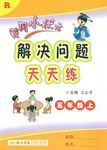题目内容
Years ago, I lived in a building in a large city. The building next door was only a few feet away from mine. There was a woman who lived there, whom I had never met, yet I could see her seated by her window each afternoon, sewing or reading.
After several months had gone by, I began to notice that her window was dirty. Everything was unclear through the dirty window. I would say to myself, "I wonder why that woman doesn't wash her window. It really looks terrible."
One bright morning I decided to clean my flat, including washing the window on the inside.
Late in the afternoon when I finished the cleaning, I sat down by the window with a cup of coffee for a rest. What a surprise! Across the way, the woman sitting by her window was clearly visible. Her window was clean!
Then it dawned on me. I had been criticizing (批评) her dirty window, but all the time I was watching hers through my own dirty window.
That was quite an important lesson for me. How often had I looked at and criticized others through the dirty window of my heart, through my own shortcomings?
Since then, whenever I wanted to judge (评判) someone, I asked myself first, "Am I looking at him through my own dirty window?"
Then I try to clean the window of my own world so that I may see the world about me more clearly.
1. The writer couldn't see everything clearly through the window because_____.
A. the woman's window was dirty B. the writer's window was dirty
C. the woman lived nearby D. the writer was near-sighted
2. The writer was surprised that_____.
A. the woman was sitting by her window B. the woman's window was clean
C. the woman did cleaning in the afternoon D. the woman's window was still terrible
3. "It dawned on me" probably means "____".
A. I began to understand it B. it cheered me up
C. I knew it grew light D. it began to get dark
4. It's clear that _____.
A. the writer had never met the woman before
B. the writer often washed the window
C. they both worked as cleaners
D. they lived in a small town
5. From the passage, we can learn ______.
A. one shouldn't criticize others very often
B. one should often make his windows clean
C. one must judge himself before he judges others
D. one must look at others through his dirty windows
BBAAC

 黄冈小状元解决问题天天练系列答案
黄冈小状元解决问题天天练系列答案1
阅读下列文段,完成表格。
Doing exercise can help people keep healthy. Do you often jog (慢跑)? Jogging became popular about twenty years ago and now it is a favorite way of keeping fit for lots of people. People of any age like to do it. Teenagers (青少年) can jog and people in their seventies or eighties can jog, too. They can jog anywhere. People jog around college campuses (校园), around houses, and in parks.
Jogging doesn't need any special (特别的) training. Do some warm-up exercises and then you are ready to start.
Jogging is good for health. It’s good for lungs and the heart. It is easy and convenient.
|
Sport |
Jogging |
|
History |
Became popular (81)____________ years ago |
|
Participant (参与者) |
People of any (82)______________ |
|
Place |
Anywhere, around college campuses, houses and in (83)____________ |
|
Adcantages (优点) |
Good for (84)_________ and the heart, (85)___________ and convenient |